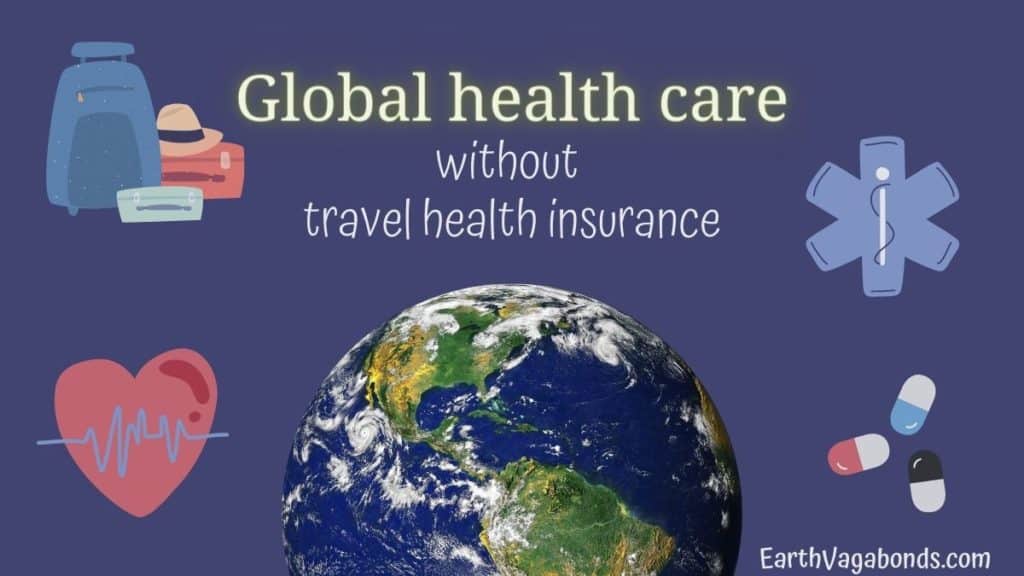This page is all about global health care without travel health insurance for budget slow travelers in early retirement. The information here draws on several years of our experiences with doctors, hospitals, clinics and medical tests in many foreign countries.
As Americans, we pay out of pocket for medical care — we travel the world without travel health insurance. This shocks most people who are afraid of this approach. But the fact is this: quality health care at affordable prices is the norm in many countries, and our experiences prove that.
Even if you decide to buy travel health insurance, this page can still help you.
This guide will:
- Highlight some differences between American and foreign health care systems
- Give you proven tips on how to find foreign doctors, surgeons, and hospitals
- Show you exact costs – including an itemized hospital bill from Malaysia
Personally, we decided against annual insurance premiums, deductibles and claims because we have found quality foreign health care to be more affordable when it’s all added up. And to be clear: we are not on a vacation. We slow travel – full time.
We retired early to see the world. Health care tied to employment or age 65 is not real freedom.
Life is Now!
- Health care without travel health insurance
Health care without travel health insurance
We’ve dealt with every health issue that has popped up since late 2015 when we started global travel in a financially efficient way while receiving quality care.
This includes:
- Prescription eyeglasses in Mexico, Spain, Philippines, India
- Broken ribs, wrist, and toe in Thailand, Malaysia, Philippines
- Heart tests in Mexico
- Dengue fever in India
- Chikungunya in Mexico
- Root canals in India
- Dental cleanings and fillings in Mexico, Malaysia, Philippines
- Double mastectomy for breast cancer in Croatia, and ongoing medical oncologist visits and tests for the subsequent five years
- Hearing tests in Thailand
- Dermatologist visits Mexico, India
That example list demonstrates our range of experience of paying for out-of-pocket quality health care as we visit foreign countries.
Nothing on this page should replace anything your doctor advises. We are not medical experts and we don’t claim to be.
What we do claim from extensive experience is a comfort level with quality health care abroad that can be extremely affordable without travel health insurance.
Our experiences with health care abroad so far have been in Latin America, Asia, and Europe.
A. How to find a doctor in a foreign country
Some elements in this category are similar to how you would do this in the USA. Most of the time you don’t need a referral, and you usually do not have to wait weeks or months to see a doctor. In fact, you can often see a doctor for simple health issues within a day or two of making an appointment.
1. Get recommendations
Get doctor recommendations from people who live in the area where you are visiting. Ask your Airbnb host or hotel manager for a reputable doctor.
Join Facebook groups in that specific area. Locals and expats who live there will likely have answers from experience.
Use Google reviews – but watch out for reviewers who’ve given less than 10 reviews.
2. English fluency
Make sure the doctor is fluent in English. This was a mistake we made early on in our travels. We relied on a translator, and something major was lost in translation.
The last thing you need is a communication barrier about your health.
In serious health matters, you need to be able to ask questions and be confident you fully understand the answers — directly from the doctor.
Example #1: surgeon NOT fluent in English
Consider Ellen’s personal experience with a surgeon who was not fluent in English.
She went to a private medical clinic in Puerto Escondido, Mexico, for a surgical breast biopsy.
The surgeon didn’t speak English, so we used a clinic-provided translator. However, the translator’s level of English was not even mediocre and our Spanish is horrible.
A critically important fact was lost in translation, and Ellen suffered accordingly.
Example #2: surgeon WAS fluent in English
Ellen was hit by a car in Thailand while she was riding a bicycle. A doctor reset her broken wrist in the emergency room, but when the swelling went down in a few weeks it needed more attention. By that time, we were in Malaysia.
Ellen had several options including surgery and pins, and we understood everything the surgeon explained about each option because he was fluent in English.
With complete understanding and confidence, Ellen made the best decision for her healing.
3. U.S. Embassy lists
State Department employees will never never officially “recommend” foreign doctors and hospitals. However, many embassies have lists of medical providers.
While these lists are not official recommendations, logic dictates that if a doctor wasn’t any good, he or she would not make it onto a list with his or her contact information.
Doctors names come from State staff who have needed medical care while working, and sometimes the provider will submit their information to an embassy for list inclusion.
At the very least, the names are starting points for your research.
How to find this information
Go to the U.S. Embassy website in the country where you need a doctor. Usually at the bottom of the page, you’ll see an ‘emergency services’ section. It might also be called ‘resources for U.S. citizens’ so have a look around the site. Every embassy’s site is a tad different.
Example #1
In Mexico, the U.S. Consulate in Merida only publishes lists of hospitals. And a disclaimer states the providers submitted their contact info, implying it didn’t come from staff or fellow expats.
This example is clearly laid out in the following link to the portal on the embassy site in Mexico: https://mx.usembassy.gov/local-resources/
Example #2
The U.S. Embassy in the Philippines gives much more detailed information. (See: https://ph.usembassy.gov/medical-assistance/)
“The Embassy at Manila has not evaluated the credentials of the physicians in this list and assumes no responsibility for their integrity or professional ability. The Embassy would appreciate receiving comments on these individuals and firms for use in their periodic revisions of this list.
“If the services of a physician in the Philippines are desired, it is suggested that a definite agreement on the matter of fees be resolved before the services are actually engaged. This is important for the patient as well as for the physician and can prevent possible misunderstanding.”If the services of a physician in the Philippines are desired, it is suggested that a definite agreement on the matter of fees be resolved before the services are actually engaged. This is important for the patient as well as for the physician and can prevent possible misunderstanding.
“A list of physicians can be found here (PDF 207 KB).”
— U.S. Dept. of State, Embassy website in the Philippines
4. Get a quote
It is important to point out the ‘definite agreement of fees before services’ in the second bullet point of the above quote.
As budget slow travelers without travel health insurance who pay out of pocket, we always are completely clear on costs before we get any medical services in any country.
In fact, if you have a major health issue and need surgery, full payment is always required before you are released from the hospital, and it is often required before services are rendered. This is also true for smaller things like blood tests at a clinic or lab.
The good news: you will get a quote that is accurate. There is no medical coding, insurance differences, or pricing shenanigans like Americans experience at home.
5. Beware: research might be tough
In the USA, states have medical boards that can discipline doctors if needed. In many foreign countries, there’s no such thing as that. This makes research difficult if not impossible.
Even if a foreign country does have something similar to a stateside medical board, the information might not be online, or it might not be in English.
This makes recommendations from locals and expats even more valuable.
One easy research method is to search a surgeon’s name in Google, and then filter the results into the ‘news’ category. Sometimes, bad doctors make headlines for their bungles.
6. Get more than 1 recommendation
If you are going to have serious health care abroad without travel medical insurance, you need to be as comfortable as you can be with every element involved. Get a second – and even a third opinion – just like you would back home.
Ask locals and expats, “Where would you send your mother/daughter/sister?” That poses a sense of morality and weight to your serious need.
As other health care providers. Ask a nurse: “Would you send your father to the doctor down the hall, or is there someone better?”
We personally would not rely solely on online reviews for something serious.
7. Interview surgeons
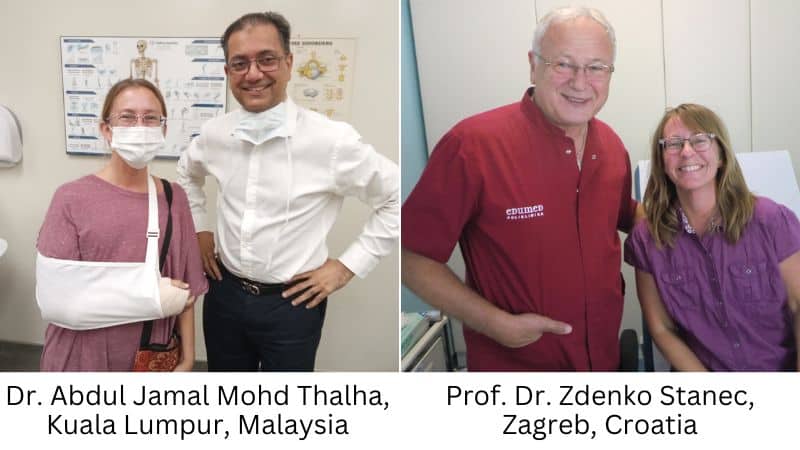
You need to feel comfortable with the person who will operate on you.
True story: one of the surgeons Ellen identified as a candidate for her double mastectomy didn’t show up to the consultation appointment. Instead, he sent another doctor instead of rescheduling the consultation in Zagreb, Croatia.
In comparison, Ellen immediately felt comfortable with another interviewee. This surgeon, Prof. Dr. Zdenko Stanec, picture above on the right, was kind, fluent in English, patient and thorough in discussing Ellen’s options, and he had a sense of humor in a serious situation that took the edge off.
She also felt extremely comfortable with Dr. Abdul Jamal Mohd Thalha, pictured above on the left. He reset her wrist under anesthesia in Kuala Lumpur, Malaysia.
B. Understanding test results
Sometimes, your doctor might speak English, but the lab report comes back in a foreign language. In these cases, we get a doctor’s summary and explanation, and then Ellen puts every word into Google translate and researches the results.
But here again, sometimes things are lost in translation, or confused, or nonsensical.
One of Ellen’s mastectomy biopsy reports had a phrase that translated into ‘goat hair’.
This is why you should plan to ask follow-up questions to your English-speaking doctor after you’ve had time to translate and evaluate test results.
C. Choosing a hospital abroad
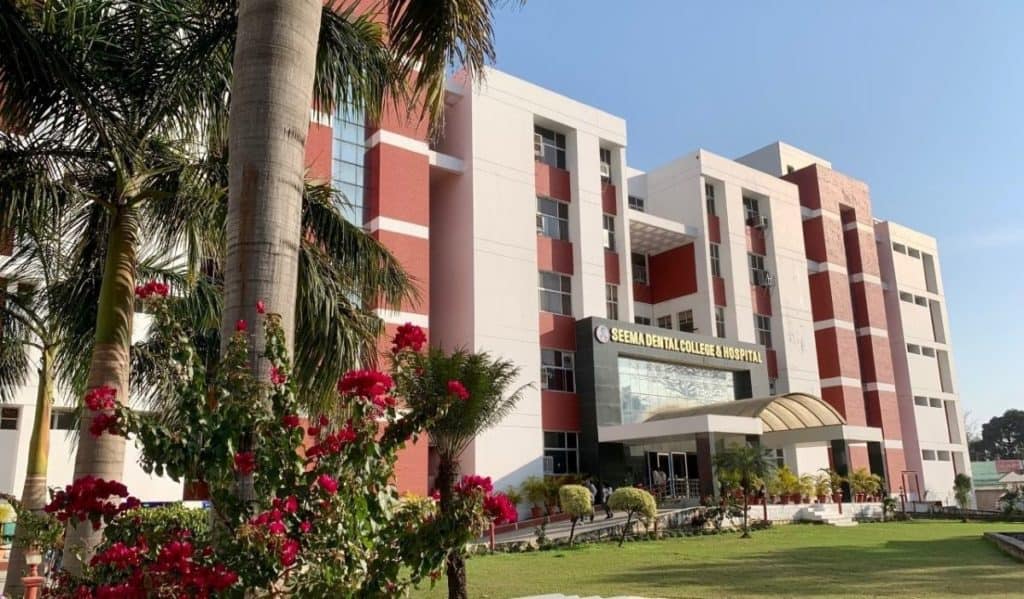
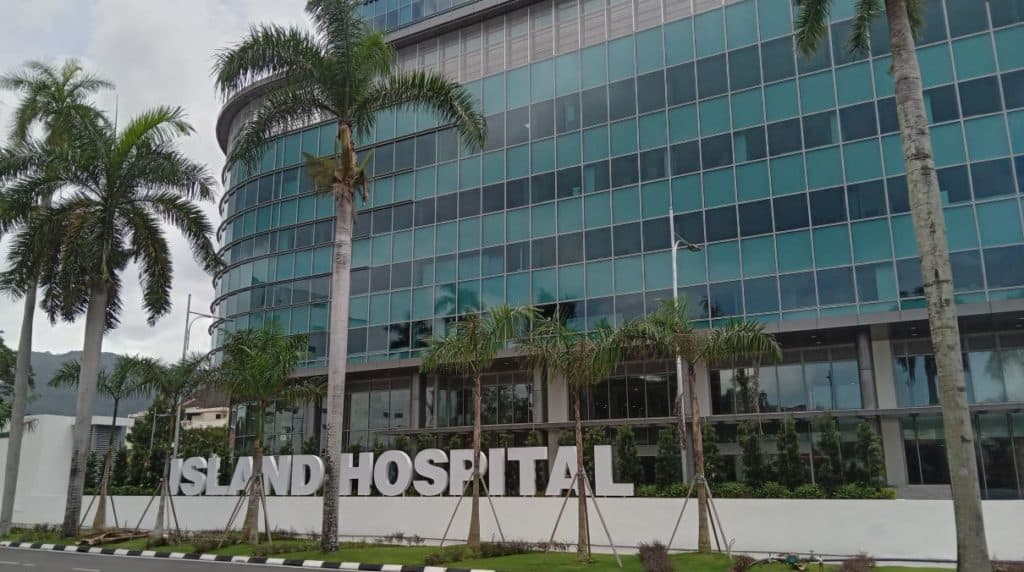
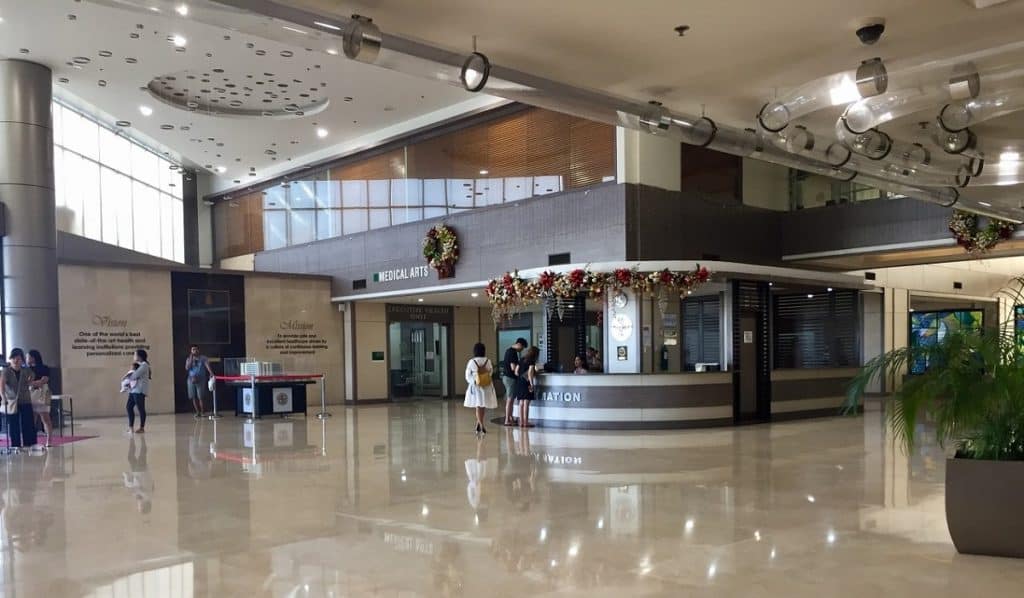
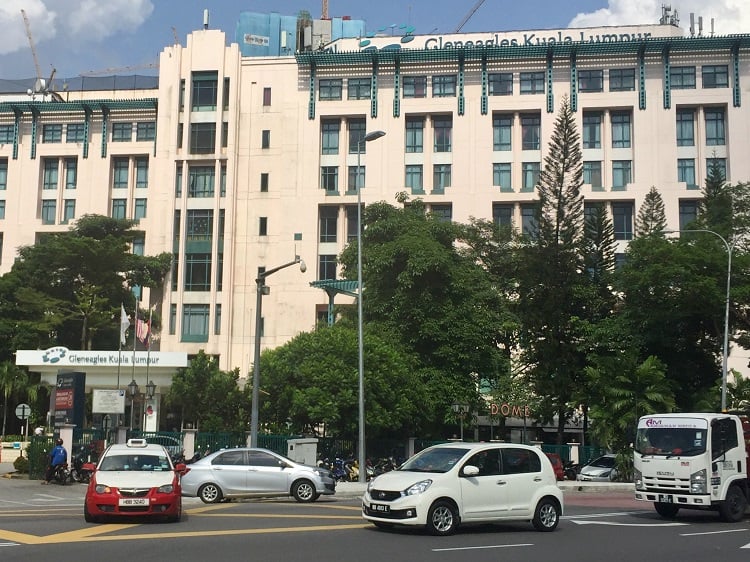
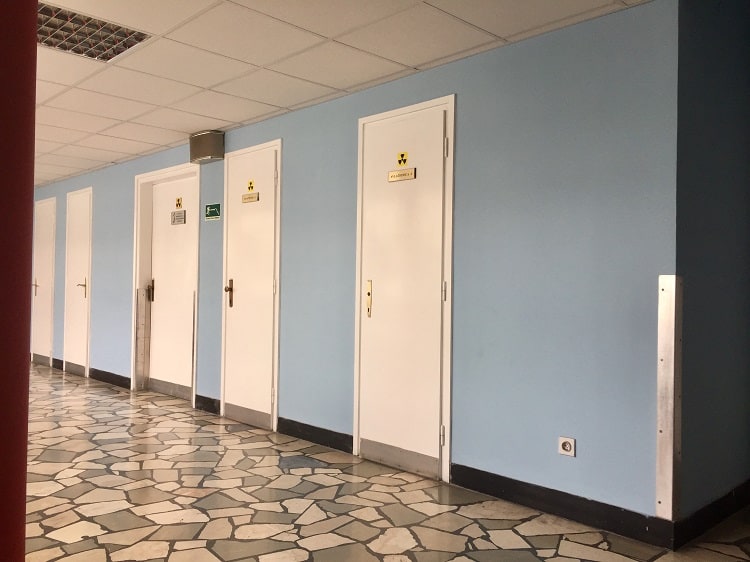
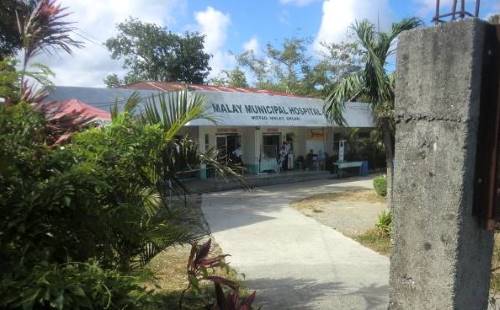
If you are having surgery, ask which facility the doctor uses. Some areas have hospitals with only basic equipment. Some doctors have access to private clinics where you might feel more comfortable, even if it costs more money.
1. Public vs. private hospitals
Public and private hospitals in India are overloaded with patients simply because of the sheer size of that country’s population. Your surgeon might be great, but their affiliated hospital might have extremely long waits for additional tests and results.
In general, would not recommend scheduled medial needs be addressed in foreign public hospitals, even though they will be drastically cheaper.
In contrast, Ellen went to a private clinic in Croatia for her double mastectomy. She had a private nurse and a recovery room all to herself.
2. International patient desks
Private hospitals often have international patient centers. We have utilized these in Chennai, India, Cebu City, Philippines, Kuala Lumpur and Penang, Malaysia, and Chiang Mai, Thailand.
As a foreigner, it is likely you will be charged more than a citizen. We jokingly call the slightly higher prices “foreigner prices” – but we do not mind. As Americans, we are happy to have access quality, affordable health care in foreign countries without travel health insurance.
The international patient center staff will often accompany you around a hospital campus to make sure you get to where you need to go. Often these desks are your point of contact for test results, and staff can help you with a medical visa, if needed.
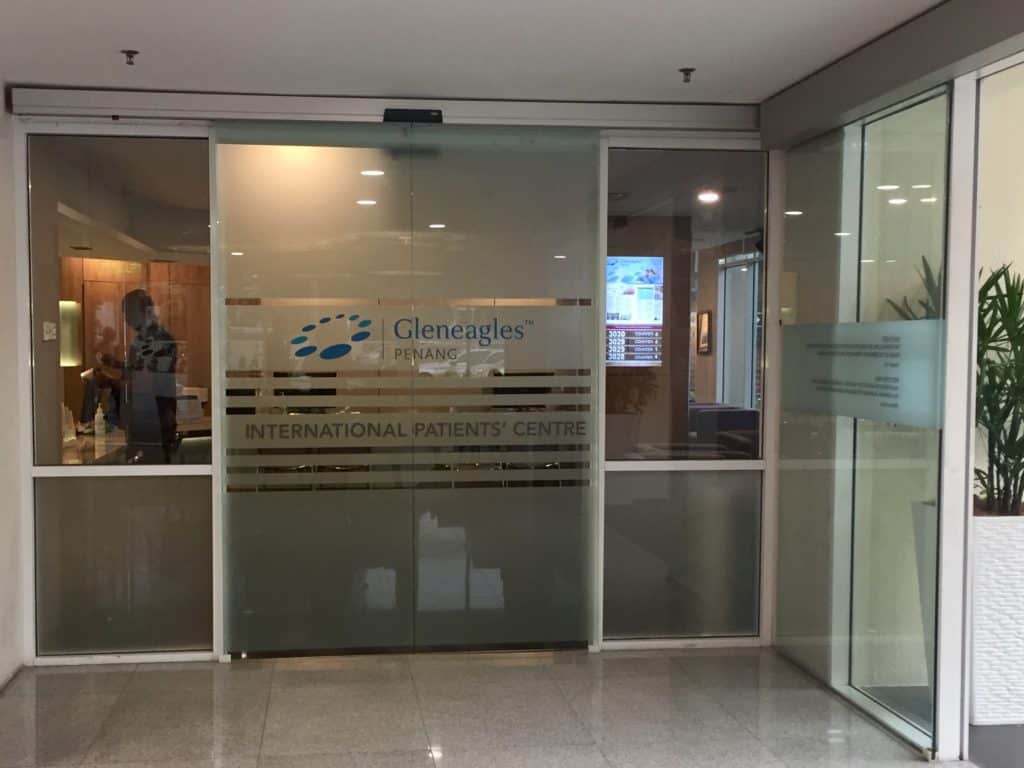
3. Regional differences
Regional differences in health care within countries exist, too. Just like back in the USA, where larger cities might have more options, better doctors and equipment than in rural areas. In foreign countries, larger cities will have more English-speaking doctors.
The Gleneagles location in Kuala Lumpur, the capital of Malaysia, is excellent and time efficient. But the Gleneagles location on Penang Island is a much smaller hospital, and it is much busier. It still has excellent care, but you will wait longer for services.
Another example. Aklan Province on Panay Island in the Philippines has a few medical clinics and hospitals in the provincial capital Kalibo. But for serious matters, people with means go to Iloilo, which is the island’s largest city and a regional hub for health care in the Western Visayas.
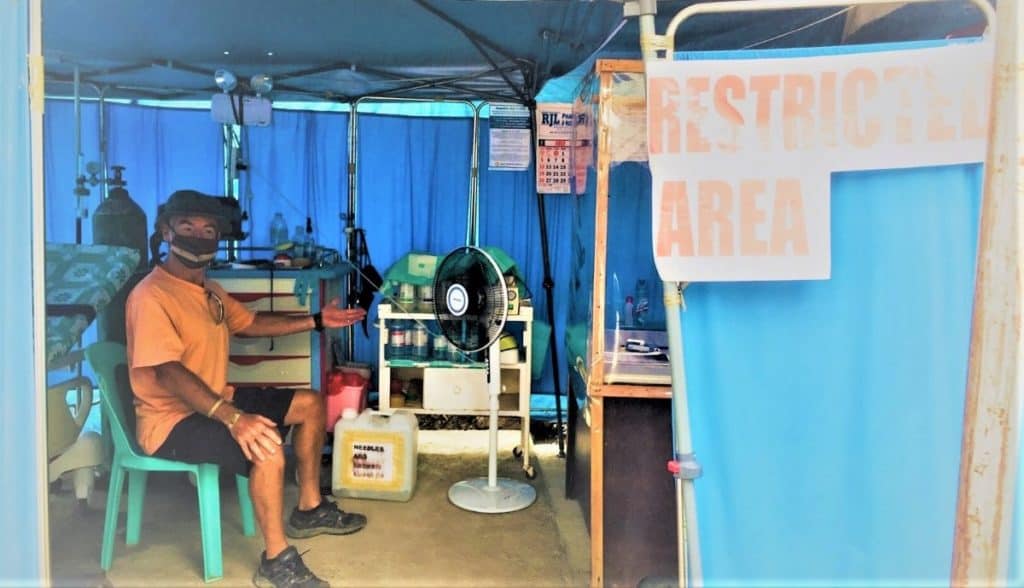
4. Tip for hospitals in developing countries
Hospitals can be basic at best in developing countries. Therefore, we suggest you look for a surgeon and hospital in a capital city. That is usually (not always) where the best medical facilities are found.
For example, we were on Lake Atitlan in Guatemala – a beautiful, rural expat haven. But when we needed help for something potentially serious, we took a private car to an emergency room in a Guatemala City hospital, where the doctors were fluent in English and the facilities were modern.
The one time we bought insurance
We have bought short-term travel health insurance when we visited Cambodia and Vietnam because we had less confidence in their health care systems and English ability.
Also, we felt it prudent to have the medical evacuation option available to get to where there would be better care.
D. Emergency rooms
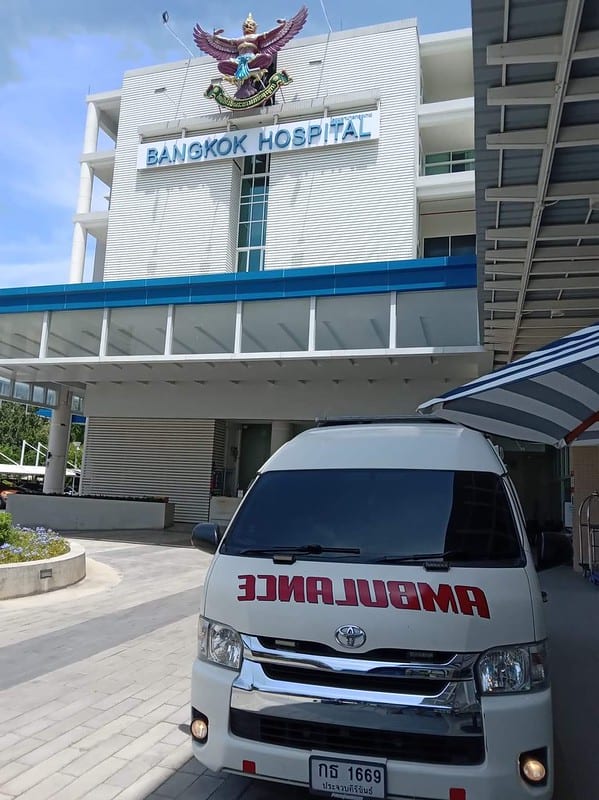
You’re at the mercy of what’s available in a medical crisis.
We have experience with this, too.
In the four times we needed an emergency room, we received initial treatments to get past the crisis, and then followed up with other doctors as needed.
You will not pay nearly as much compared to the USA.
Our emergency room health care without travel health insurance cost $250 to under $900, as opposed to the thousands of dollars it would have cost in the USA.
E. Medical visa or tourist visa?
Visa types and lengths vary by country.
Some countries offer a medical visa if the time required for your treatment will violate the terms of your tourist visa. Your doctor’s staff or a hospital international patient desk should be able to help you with the application, if needed.
Medical visa overview
To apply for a medical visa, some countries require a bank account statement that shows a minimum amount, and you need might need a recommendation from a doctor. It will depend on the country.
A caregiver (usually a spouse or other relative) must apply for a separate visa called a medical attendant or medical companion visa.
A medical visa might dictate where a patient gets health care. That’s the case in India, for example. Foreign patients with medical visas can only get treatment at government-authorized facilities.
Medical visas can last up to a year, and can be extended if needed.
International patient centers in hospitals discussed above can assist foreign patients with this medical visa process. In places like Thailand, private hospitals advertise package deals for things like knee replacement surgery, medical visa application assistance, shuttle from the airport, etc.
But that is getting into ‘medical tourism’ – where someone goes to a country specifically for medical care. Of course, there are medical tourism coordinating companies that will do all of this arranging for you, and you will pay them a tidy sum for their services.
We have no experience with them, since we do this ourselves.
Remember: each country has its own rules – which can change at any time – so you must check on the requirements at the immigration department at your destination country.
F. Price examples of health care without travel medical insurance
Now let’s talk more about prices. We will give you several real-world costs.
To be clear, prices listed below are from 2015 to 2023 — all for global health care without travel medical insurance.
Generally speaking, health care prices have not increased that much around the world during that time, unlike rent and consumables. We know this because we have returned to some of the same doctors’ offices and hospitals over the years.
1. Serious medical needs
- Broken wrist in Thailand, reset by surgeon in Malaysia – 2022
- Total price: $2,015
- $440 – for emergency room X-rays and reset at Bangkok Hospital in Hua Hin
- Care rating: Good
- $1,575 – for X-rays, consultation, second reset under general anesthesia at Gleneagles Hospital in Kuala Lumpur
- Care rating: Excellent
- Total price: $2,015
- Broken ribs in Thailand – 2019
- Total price: $894 – for emergency room visit with CAT scan at Bangkok Hospital in Hua Hin
- Care rating: Good
- Ellen’s breast cancer diagnostic tests and double mastectomy in Croatia – 2018
- Total price: 10K – for 3D mammogram, biopsies, several doctor consultations, surgery and overnight recovery in private clinic with private nurse
- Care rating: Excellent
- Ellen wholeheartedly recommends this private clinic: https://edumed.hr/ (website has English translation feature, and Dr. Stanec is fluent in English)
- Further reading
- Dengue fever in India – 2022
- Total price: $54
- This cost was for several blood tests collected with an at-home service, medicines like paracetamol, digital thermometer
- Further reading
- Psychiatrist in Thailand at Manarom Hospital in Bangkok – 2019
- Total price: $92.25
- Care rating: Excellent
- No further reading
- Emergency room in Guatemala City at Hospital Centro Medico – 2017
- Total price: $235
- Care rating: Good
- No further reading
- Surgical breast biopsy in Mexico – 2017
- Total price: $500
- This covered a mammogram, ultrasound, three doctor opinions, blood tests, surgical procedure, tissue biopsy
- Care rating: Poor
2. Root canals
- Root canals in India – 2023
- Theo’s root canal #1 in Chennai
- Total price: $287.50
- Care rating: Poor – had to be redone in Rishikesh
- Theo’s root canal #2 in Rishikesh
- Total price: $247.50
- Care rating: Great
- No further reading on Theo’s root canals
- Ellen’s root canal in Rishikesh at Seema Dental College and Hospital
- Total price: $12
- Care rating: Excellent
3. Basic health care
- Broken toe in the Philippines – 2022
- Total price: $37 for X-rays at a clinic on Boracay Island
- Care rating: Good
- Heart tests in Mexico – 2017
- Total price: $57.50
- Cost covered blood tests and EKG
- No further reading
- Hearing tests in Thailand at Ram Hospital – 2019
- Total price: $75.50
- Care rating: Excellent
- No further reading
- Dermatologist in India at H4U Clinic in Chennai – 2022
- Total price: $43
- Covered two skin cancer prevention checks; one small cyst lasered off
- Care rating: Excellent
- No further reading
- Dental care and cleanings in Mexico, Philippines, Malaysia
- 2017 total price in Mexico: $38, for cleaning and two X-rays
- Care rating: Excellent
- 2020 total price in Philippines: $33, cleaning and one small filling
- Care rating: Great
- 2022 total price in Malaysia: $114.50, two cleanings, two X-rays
- Care rating: Excellent
- Further reading: Mexico, Philippines, Malaysia
4. Post-breast cancer care
- Oncologist visits for breast cancer checks in Malaysia, Thailand, Philippines
- 2022 Malaysia office visit price: $24
- Gleneagles Hospital, Kuala Lumpur
- Care rating: Excellent
- 2021, 2020 Philippines office visit prices: $10 both times
- Gabriel Hospital, Kalibo, Aklan Province
- Care rating: Excellent
- 2019 Philippines office visit price: $20
- Chong Hua Hospital, Cebu City
- Care rating: Excellent
- 2019 Thailand office visit price: $20
- Ram Hospital in Chiang Mai
- Care rating: Excellent
- Note: all medical oncologists always ordered tests.
- Prices ranged from country to country. But to give you an idea:
- $20 ultrasounds (average price)
- $55 tumor marker tests (median price)
- $100 hormone tests (Malaysia)
- $242 for full blood workups (Malyasia)
- $240 for CAT scan (Malaysia)
- An extensive cost breakdown example is from Cebu City, Philippines in December 2019.
- Another extensive cost breakdown is from Kuala Lumpur, Malaysia, in 2022 (which includes the cost of a gynecologist visit)
- Further reading: CAT scan in George Town, Malaysia in 2019
- Prices ranged from country to country. But to give you an idea:
5. Prescription eyeglasses examples
- Prescription eyeglasses in Mexico, Spain, Philippines, India
- 2016 Mexico price: $310 – trifocal progressive higher-end, thinner lenses, with Crizal in new frames
- Care rating: Excellent
- 2018 Spain price: $594 – 2 pairs — trifocal progressives, new frames; prescription ionized sunglasses
- Care rating: Great
- 2021 Philippines price: $223, trifocal progressives, chromatic coating, new frames, plus old lenses put into new frames
- Care rating: Excellent
- 2022 Philippines price: $220, trifocal progressives, Transition coating, new frames
- Care rating: Excellent
- 2023 India price: $120 pair #1 – trifocal progressive Crizal lenses with Transition coating, new frames
- Care rating: Excellent
- 2023 India price: $100 pair #2 – trifocal progressive Crizal lenses, new frames
- Care rating: Excellent
- Extensive further reading: Mexico, Spain, Philippines, India
To find even more cost examples of health care without travel health insurance on this site, use the Search function.
G. Prescription drugs overseas
Prescription medications will be part of your medical needs as a global slow traveler.
Meds are often less expensive in foreign countries — especially developing nations. However, some generics are made in China with different regulation rules. Honestly, we try not to buy those.
Some name brand prescriptions are actually more expensive if they need to be imported. And some newly-released name-brand drugs are not yet sold in developing nations.
Buy from temperature-regulated pharmacies in the tropics so the medication is not degraded from heat and humidity. In areas with frequent power outages (such as the location of our ‘pandemic bunker’ in the Philippines), chose a pharmacy that has — and uses — a generator during brown outs.
Further reading: How to buy prescription drugs overseas in 5 easy steps
H. Health savings accounts
Health savings account contributions are not taxed. You can reimburse your out-of- pocket medical expenses from this account, or use an account debit card to pay for the health care up front.
We used Ellen’s debit card to pay up front one time in 2016 to buy eyeglasses in Mexico. However, there was a one percent fee on top of the sale for using the card outside the U.S., so make sure you read the fine print of your own HSA debit card.
We have used regular credit cards for health care around the world without any problems.
We keep receipts for everything. We take pictures of the receipts and upload them into our cloud storage as tax records. (See IRS publication 969, ‘Distribution’ section. You cannot use these funds for anything other than medical expenses.)
In our case, our health care expenses are paid out of pocket so that we can leave our invested HSAs to grow. At some point in the future (or anytime necessary) we will reimburse ourselves for past years of expenses.
I. Overseas medical insurance
Travel health insurance policies continually change, especially with more nomads and vagabonds than ever. Additionally, since the COVID pandemic, we’ve noticed these premiums have increased substantially.
For us, policy premiums, deductibles, and fine print were not worth it – despite the many thousands of dollars we have spent on health care abroad over nearly eight years. Besides, things like Ellen’s breast cancer would not have been covered under travel health insurance.
There is one other option for expats like us — something called ‘overseas’ medical insurance. That can cover things like breast cancer treatment.
Overseas medical insurance is different type of insurance. It is much more like a standard policy that you would have back in the USA. It has a different set of rules, and it is more expensive.
Global health care without travel health insurance
We have shared our experiences freely to demonstrate that quality health care without travel health insurance is a reality for us early retirees.
As you evaluate your own needs and approach, we hope this has given you a transparent look at foreign medical care that most Americans find intimidating.
Our mantra: Life is Now – and so we travel now.
